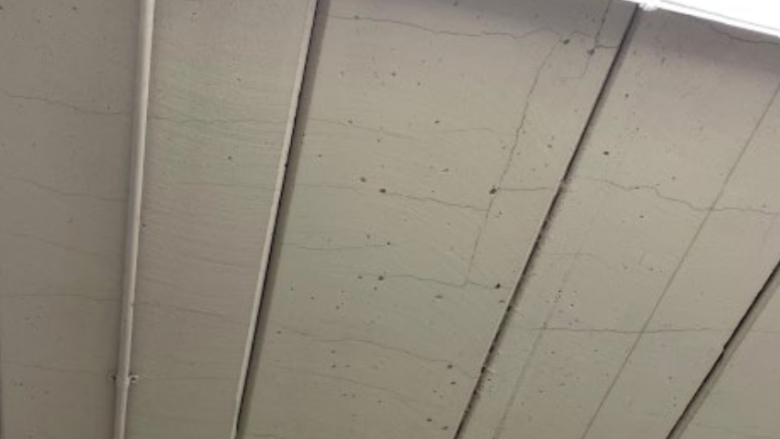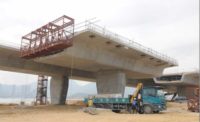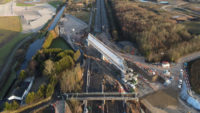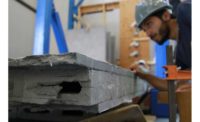Days before schools in England were due to open, the government ordered 104 of them to remain fully or partly shut out of fear they might collapse. Built before 1980, the schools, and 50 others already undergoing mitigation, contain structural panels made of reinforced autoclaved aerated concrete, called RAAC, now considered unsafe.
Public hospitals and other public buildings that contain RAAC structures also are at risk. Earlier this year, the government’s health and social care secretary of state reported seven hospitals in England containing RAAC elements that are not safe to operate beyond 2030.
RAAC is a lightweight concrete-like material made with cement and fine aggregate including chemicals that create gas bubbles when heated during curing.
"It is relatively weak with a low capacity for developing bond with embedded reinforcement," according to the U.K. Standing Committee on Structural Safety.
Awareness of the problem is not new. Supported by the nation's two professional engineering groups—the Institution of Civil Engineers and the Institution of Structural Engineers—and the U.K.'s Health and Safety Executive, the committee on structural safety first alerted schools of the risk of pre-1980 RAAC structures in 1999.
Following a roof collapse at a school in Kent in July 2018, the government and the Local Government Association issued the first warning note to building owners the following year.
 Cracks in the underside of RAAC panels. Photo by Ove Arup and Partners Ltd. courtesy of U.K. Dept. for Education
Cracks in the underside of RAAC panels. Photo by Ove Arup and Partners Ltd. courtesy of U.K. Dept. for EducationTens of thousands RAAC structural panels exist in a range of building types across the U.K., according to Chris Goodier, a construction and materials professor at Loughborough University, which led a recent study into the product for Britain's National Health Service.
RAAC is "still manufactured and installed all over the world and can be an appropriate construction material if properly designed, manufactured, installed and maintained," he noted.
"Our research has shown however, that this is often not the case for RAAC panels constructed in the 1950s, '60s and '70s,” added Goodier.
Regarding shutting the schools, Gillian Keegan, U.K. secretary of state for education, says that "while some short-term disruption is inevitable...all available measures are being taken to minimize disruption to learning."
That is not placating Daniel Kebede, general secretary of the teachers' National Education Union. He calls closing schools so close to the start of the academic year "absolutely disgraceful."






Post a comment to this article
Report Abusive Comment